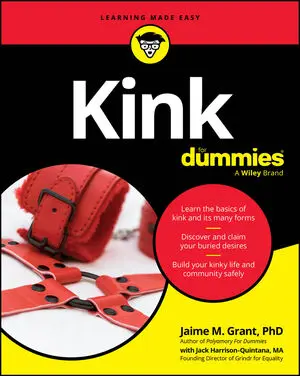Featured Relationships & Family Books

Modern Dating For Dummies
NYC's TikTok Cupid presents a must-have dating guide for building confidence and finding lasting love! Dating can be fun, exciting, draining, disorienting, dangerous, and more. And if you're one of the millions of people in the market for a new partner (or two), how can you make sure that your dating life is more exhilarating than exhausting? Enter Modern Dating For Dummies, a straight-forward and friendly guide to getting the most out of contemporary dating without ending up as a cautionary tale in the next catfishing documentary on your favorite streaming service. Author Tiff Baira, NYC's official TikTok Cupid and dating guru, walks you through how to date like a champ. You'll learn how to sort the Red and Green flags, how to keep your confidence high (or get it back), protect against outright scams and frauds, and navigate new kinds of relationships. You'll also discover: How to emotionally deal with being ghosted and manage your relationship anxiety Exactly what to do after a first date that went REALLY well (or terribly sideways) How to manage the overwhelming combo of online dating and IRL Encounters that shape the modern dating space. Master the modern dating scene with today's top apps Whether you're looking for help on how to date after the end of a long relationship or you just need a few tips on how to use apps, flirt, get out of a situationship or how to find your next hookup-slash-soulmate-slash-spouse, Modern Dating For Dummies has the info you can put to work immediately to make your dating life better, easier, and more fun.

Making Friends as an Adult For Dummies
Make lasting friendships at any ageMaking Friends as an Adult For Dummies helps you overcome the challenges of building friendships, forming new bonds, and meeting new people. First, you'll learn what your friendship needs are and decide what kind of friends you'd like to meet. Then you'll get concrete advice for building a new social circle, turning acquaintances into good friends, and letting go of friendships that just aren't working out. Single or married, parent or childfree, many people face these same challenges. This Dummies guide will show you that you aren't alone and will help you discover sustainable ways to overcome loneliness, keep friendships going despite occasional tension, and build your “family of choice.”Assess your friendship needs and learn how to find people who would make good friendsGain the communication skills to resolve conflict in new and existing platonic relationshipsOvercome your fear of rejection and learn to politely end friendships that aren't workingLearn to be a good friend and deepen the friendships you buildMake friends after retirement, relocation, extended isolation—or just because friends are nice to have. Making Friends as an Adult For Dummies is the judgment-free book that makes it easy.

Polyamory For Dummies
A clear breakdown of polyamory for beginners and the newly polyamorousPolyamory literally means “more love”. Twenty-first century polyamory is the practice of engaging in multiple intimate relationships at the same time, with the full consent of all partners. Polyamory For Dummies gives you the lowdown on this expansive form of consensual non-monogamy, so you can go forth and prosper in whatever ways you choose. This straightforward, research-backed, and nuanced guidebook helps the poly-curious become poly-fluent. Embark on your non-monogamous journey via a healthy and sustainable path, with answers to all your big questions: Is polyamory is right for you? What does the “ethical” mean in non-monogamy? How do polyamorous people deal with jealousy and conflict among partners? Is it possible to “open up” an existing monogamous relationship? Find out everything you've been wanting to know, with this big-hearted, yet practical Dummies guide.Learn about primary partners, secondary partners, metamours, and polyculesDiscover how polyamorous relationships function, and how to co-create the right form for you and your partnersUnderstand the universality of jealousy and learn how to deal with it constructivelyGet insights into centering consent, dating as a poly person, coming out poly, multi-gender and multi-sexuality polycules, parenting while poly, disability, aging, and more!Everyday people curious about or exploring multi-partner, ethically non-monogamous relationships will love the practical advice and broad range of examples in Polyamory For Dummies.




